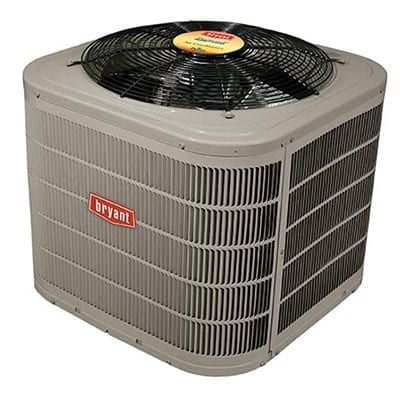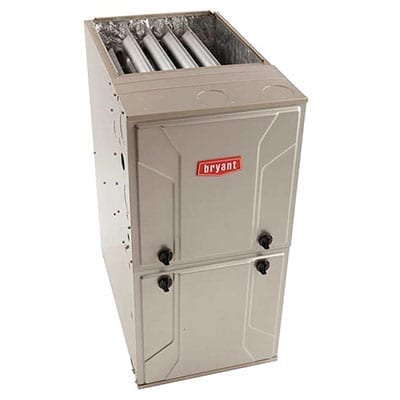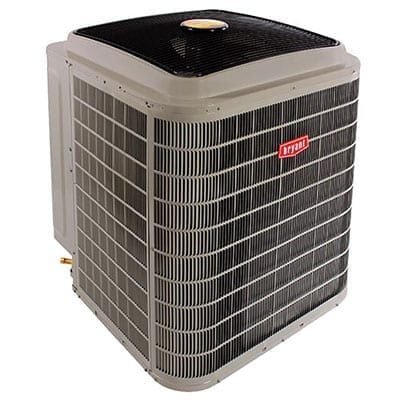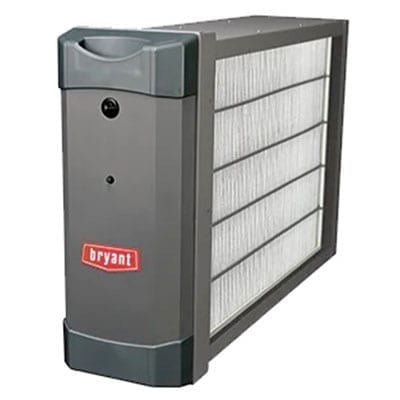Commercial HVAC for Technology Firms
Commercial HVAC systems, including air conditioning technologies and heat recovery, play a pivotal role in maintaining optimal working conditions, directly impacting energy efficiency and employee productivity within technology firms. These systems, including air conditioners, are crucial for creating comfortable environments that foster focus, creativity, and overall well-being. The unique HVAC needs of technology companies often revolve around specialized equipment cooling requirements and the ability to maintain precise temperature and humidity levels essential for sensitive electronic components. As commercial applications continue to advance, the demand for efficient air conditioners and tailored HVAC solutions in commercial buildings becomes increasingly vital.
The Critical Role of HVAC Engineers in Tech Environments
Expertise Required
Designing commercial HVAC for technology firms demands specialized expertise. Engineers need to understand the unique cooling requirements of tech facilities and HVAC equipment. They have to consider the heat generated by servers, data centers, cooling systems, and other electronic equipment. They must account for the layout of the space and specific cooling needs in different areas.
For example, a server room requires precise temperature control to prevent overheating of critical hardware components. /// On the other hand, open office spaces might require a different approach to maintain a comfortable working environment while efficiently managing energy consumption.
Balancing Cooling Needs
HVAC engineers play a crucial role in balancing the cooling needs with sensitive tech equipment requirements. They have to design systems that can effectively manage heat dissipation from high-performance computing machines without compromising their functionality or longevity.
This means carefully selecting appropriate air conditioning units and ventilation systems that can provide adequate cooling without causing disruptions due to excessive noise or vibration.
Furthermore, engineers must ensure that these systems are scalable and adaptable as technology firms expand or upgrade their infrastructure over time.
Employee Well-being
In addition to technical considerations, commercial HVAC for technology firms also focuses on ensuring optimal air quality and ventilation for employee well-being. This involves designing systems that not only regulate temperature but also filter out pollutants such as dust particles, allergens, and volatile organic compounds (VOCs) commonly found in indoor environments.
By prioritizing indoor air quality through efficient filtration systems and proper ventilation strategies, HVAC engineers contribute significantly to creating healthy workspaces where employees can thrive. ///
To summarize:
-
Specialized expertise is required for designing commercial HVAC for technology firms.
-
Engineers balance cooling needs with sensitive tech equipment requirements.
-
The focus is not just on regulating temperatures but also on ensuring optimal air quality for employee well-being.
Selecting the Right HVAC Contractor for Technology Firms
Importance of Experience
When selecting an HVAC contractor for technology firms, it’s crucial to prioritize experience. The contractor should have a proven track record in handling the unique requirements of tech facilities. These include maintaining precise temperature and humidity levels to protect sensitive equipment. For example, a contractor with experience in servicing data centers or server rooms would be well-equipped to handle the specific needs of technology firms.
Furthermore, the HVAC contractor should have a deep understanding of the intricate systems found within tech environments. /// This includes familiarity with complex cooling systems, air distribution setups, specialized ventilation solutions, and key facts required by high-tech facilities. By choosing an experienced contractor who has worked extensively with similar technological infrastructures, technology firms can ensure that their HVAC needs are met efficiently and effectively.
Energy-Efficient Solutions
Another vital consideration is evaluating the contractor’s understanding of energy-efficient solutions. In today’s environmentally conscious climate, energy efficiency is paramount for businesses across all sectors, including technology firms. An adept HVAC contractor should be well-versed in implementing sustainable practices that minimize energy consumption without compromising operational effectiveness.
For instance, they should possess knowledge about modern technologies such as variable refrigerant flow (VRF) systems or smart thermostats that can optimize energy usage based on real-time demand. Proficiency in integrating renewable energy sources like solar power into HVAC systems demonstrates a commitment to eco-friendly practices while reducing operational costs for tech firms.
Facility Managers and HVAC Maintenance in Tech Companies
Role of Facility Managers
Facility managers play a crucial role in overseeing the maintenance and operations of commercial HVAC systems in technology firms. They are responsible for ensuring that the heating, ventilation, and air conditioning systems are functioning optimally to create a comfortable indoor environment for employees.
In addition to this, facility managers also oversee the management of air handlers, which are essential components of HVAC systems responsible for regulating and circulating air within a building. These professionals work closely with HVAC service providers to ensure that all equipment is well-maintained and operating efficiently.
Implementing Proactive Maintenance Schedules
One of the key responsibilities of facility managers is implementing proactive maintenance schedules for the equipment. This involves conducting regular inspections, cleaning, and servicing to prevent unexpected breakdowns or disruptions in HVAC operations.
By scheduling routine maintenance tasks such as filter replacements, coil cleaning, and lubrication of moving parts, facility managers can significantly reduce the likelihood of system failures. For instance, they may arrange for quarterly inspections by an HVAC service provider to address any potential issues before they escalate into major problems.
Furthermore, these proactive measures contribute to maintaining good indoor air quality within tech company facilities. Clean filters and well-maintained equipment ensure that employees have access to fresh air while working indoors.
Importance of Quick Response
In tech environments where continuous operation is critical, quick response to HVAC issues is paramount. Facility managers must collaborate closely with reputable HVAC service providers who offer responsive service when urgent repairs or troubleshooting are required.
When there’s an unexpected malfunction with an air handler or cooling system on site at a technology firm’s office space or data center, immediate action is necessary to avoid any disruption in business activities. Therefore, having a reliable service provider who can promptly address these issues becomes indispensable for maintaining seamless operations within tech companies’ facilities.
To summarize:
-
Facility managers oversee the maintenance and operation of commercial HVAC systems
-
They implement proactive maintenance schedules for equipment like air handlers
-
Quick response from reliable service providers is crucial in addressing urgent HVAC issues
Exploring New Trends in HVAC for the Tech Industry
Variable Refrigerant Flow (VRF)
Commercial HVAC for technology firms has evolved with the adoption of advanced technologies like Variable Refrigerant Flow (VRF). VRF systems offer precise control over the flow of refrigerant to multiple evaporators, allowing simultaneous heating and cooling in different zones. This is particularly beneficial for tech companies with diverse spaces, as it provides efficient temperature management without compromising comfort. For instance, a large tech firm with open workspaces, private offices, and server rooms can benefit from the flexibility and energy efficiency offered by VRF systems.
Integrating smart thermostats into commercial HVAC systems allows technology firms to monitor and adjust temperatures remotely. By leveraging IoT devices, facility managers can access real-time data on temperature fluctuations across various spaces within their facilities. This level of monitoring ensures that sensitive equipment such as servers or data centers are kept at optimal temperatures at all times.
Sustainable and Eco-Friendly Solutions
The integration of sustainable and eco-friendly solutions in commercial HVAC for technology firms aligns with the industry’s commitment to environmental responsibility. By incorporating these solutions, tech companies can reduce their carbon footprint while optimizing energy usage. For example, adopting high-efficiency cooling products helps minimize electricity consumption while maintaining ideal working conditions in server rooms or other critical areas.
Embracing sustainable practices also enhances a company’s reputation by demonstrating its dedication to environmentally friendly operations. Many governments offer incentives or rebates for businesses that implement eco-friendly HVAC technologies — making it not only an ethical choice but also a financially prudent one.
The Impact of Building Automation Controls in Tech Firms
Automated HVAC Controls
Commercial HVAC for technology firms is greatly impacted by building automation controls. These controls enhance energy management by automating the regulation of heating, ventilation, and air conditioning systems. By utilizing advanced building management systems, tech firms can optimize their energy usage and reduce operational costs.
Automation allows for the streamlining of temperature adjustments based on occupancy and usage patterns within the building. For instance, during non-peak hours or when certain areas are unoccupied, the HVAC system can automatically adjust to conserve energy without compromising comfort. This level of control ensures that resources are utilized efficiently while maintaining a comfortable environment for employees.
Real-Time Data Analytics
Real-time data analytics play a crucial role in optimizing HVAC performance within tech firms’ buildings. With access to real-time data, facility managers can monitor and analyze energy consumption patterns to identify areas where efficiency can be improved. For example, if certain zones consistently exhibit high energy usage despite low occupancy levels, adjustments can be made to regulate heating or cooling in those specific areas.
By leveraging this data-driven approach, tech firms can make informed decisions regarding their HVAC systems’ performance and overall energy consumption. This not only leads to cost savings but also contributes to environmental sustainability by reducing unnecessary resource utilization.
Implementing such automated controls not only enhances comfort but also significantly reduces operational costs associated with heating and cooling large commercial spaces.
Advantages of VRF Systems for Technology Firm Facilities
Efficient Cooling
Commercial HVAC for technology firms, such as Variable Refrigerant Flow (VRF) systems, offers flexibility and zoning capabilities that are highly beneficial. VRF systems enable different areas of a tech facility to be cooled or heated independently, allowing for precise temperature control in various zones. This capability is especially advantageous in technology firm facilities where certain areas may require more cooling due to the presence of heat-generating equipment.
The flexibility provided by VRF systems allows technology firms to efficiently manage their cooling needs without wasting energy on spaces that do not require it. For example, server rooms with high heat loads can be kept cool while other areas can operate at higher temperatures when unoccupied. The ability to zone different sections of the building also means that companies can tailor the indoor climate based on specific requirements within each area.
VRF systems excel in providing efficient cooling solutions for technology firm facilities by optimizing energy usage and minimizing waste. In comparison to traditional HVAC systems, VRF technology delivers significant energy efficiency benefits through its ability to modulate refrigerant flow based on demand. This results in reduced energy consumption during periods of lower cooling demands, contributing to cost savings and environmental sustainability.
Adaptability for Tech Facilities
VRF systems prove their suitability by adapting seamlessly to changing conditions. Technology firms often experience fluctuating thermal loads due to factors like equipment operation, occupancy patterns, and external weather variations. In these scenarios, VRF’s capacity modulation capabilities ensure that precise amounts of refrigerant are delivered as needed throughout the facility.
Moreover, the adaptability of VRF systems aligns well with the dynamic nature of technology environments where space usage may evolve over time. Whether it’s reconfiguring office layouts or expanding server rooms, VRF’s flexibility enables seamless adjustments without compromising comfort or operational efficiency.
Sustainability and Efficiency in Tech Firm HVAC Solutions
Green Building Principles
Commercial HVAC for technology firms incorporates green building principles to ensure sustainable and energy-efficient solutions. By integrating green building practices into HVAC designs, tech firms can significantly reduce their environmental impact. For example, the use of high-efficiency air filters and advanced ventilation systems helps improve indoor air quality while minimizing energy consumption.
Implementing energy-efficient equipment is crucial in achieving sustainability in tech firm HVAC solutions. The selection of modern, energy-saving HVAC systems such as variable refrigerant flow (VRF) or geothermal heat pumps can substantially reduce overall energy usage. These systems are designed to optimize performance based on real-time demands, resulting in lower energy consumption without compromising comfort levels.
Renewable Energy Sources
Incorporating renewable energy sources into commercial HVAC solutions further enhances sustainability for technology firms. Integration of solar panels or wind turbines can provide clean power to supplement the electrical needs of heating, ventilation, and air conditioning systems. This approach not only reduces reliance on traditional grid electricity but also contributes to a greener environment by harnessing renewable resources.
Smart Technologies and AI in Commercial HVAC Management
Predictive Maintenance
Commercial HVAC for technology firms benefits from AI-driven predictive maintenance, which uses data analysis to predict when equipment might fail. By implementing this technology, companies can avoid unexpected breakdowns and reduce downtime. For example, sensors can monitor the performance of air conditioning units and alert maintenance teams before a potential issue escalates.
Implementing predictive maintenance not only saves money on emergency repairs but also prolongs the lifespan of HVAC systems. This proactive approach minimizes disruptions to daily operations within tech firms, ensuring a comfortable working environment for employees.
Real-time Environmental Monitoring
Integration of smart sensors allows for real-time monitoring of environmental conditions within a building. These sensors collect data on temperature, humidity, air quality, and occupancy levels. The information gathered enables precise control over heating, ventilation, and air conditioning systems.
By leveraging real-time environmental data with sophisticated software solutions, tech firms can optimize indoor conditions based on actual needs rather than general assumptions. This level of precision ensures energy efficiency while maintaining occupant comfort throughout the facility.
Energy Optimization through AI-Driven Controls
The incorporation of AI-driven controls facilitates dynamic adjustments to HVAC settings based on real-time data analysis. These controls can automatically regulate temperature zones depending on occupancy patterns or adjust airflow rates according to specific requirements in different areas of the building.
With advanced algorithms constantly analyzing patterns and making adjustments accordingly, energy consumption is optimized without compromising comfort or operational effectiveness. As a result, technology firms benefit from reduced utility expenses while contributing to overall sustainability efforts by minimizing their carbon footprint.
Conclusion: Future-Proofing Tech Firms with Advanced HVAC Systems
Importance of Future-Ready HVAC Systems
Commercial HVAC systems play a crucial role in maintaining optimal indoor conditions for technology firms. With the rapid advancements in technology, it’s essential for these firms to invest in future-ready HVAC systems that can adapt to their evolving needs. These advanced systems are designed to provide not only efficient heating and cooling but also integrate seamlessly with the complex technological infrastructure of these firms.
Investing in such advanced HVAC systems ensures that technology firms can maintain a comfortable and productive work environment for their employees while also aligning with the latest sustainability standards. For example, modern HVAC systems are equipped with energy-efficient features, such as variable refrigerant flow (VRF) technology, which allows for precise temperature control and reduces energy consumption.
In addition to providing a comfortable indoor environment, future-ready HVAC systems can also contribute to the overall operational efficiency of technology firms. By integrating smart technologies and AI-driven management, these systems can proactively identify and address maintenance issues, minimizing downtime and ensuring uninterrupted operations.
Seamless Integration with Tech Infrastructure
One of the key challenges for technology firms is ensuring that the installation of advanced HVAC systems does not disrupt their existing technological infrastructure. Future-ready HVAC solutions are designed to seamlessly integrate with the complex network of servers, data centers, and other technological components without causing any interference.
For instance, modern HVAC systems offer flexible installation options such as split systems or heat recovery units, allowing for customized configurations that can fit within the limited space available in tech facilities. This ensures that the installation process is efficient and minimizes any impact on the ongoing operations of the firm.
Moreover, the compatibility of advanced HVAC systems with smart building management systems enables centralized control and monitoring, allowing technology firms to manage their entire facility through a single interface. This level of integration not only streamlines operational processes but also provides valuable insights into energy usage and performance metrics, supporting data-driven decision-making for further optimization.
Frequently Asked Questions
What are the key HVAC requirements for technology firms?
Technology firms often require precise temperature and humidity control to maintain optimal working conditions for sensitive equipment. Air quality is crucial to ensure a healthy and productive environment for employees.
How can technology firms benefit from VRF systems?
VRF (Variable Refrigerant Flow) systems offer energy efficiency, individual zone control, and quiet operation, making them ideal for the diverse needs of technology firm facilities. They provide reliable cooling and heating while minimizing energy consumption.
Why is building automation important for tech firms’ HVAC systems?
Building automation enables centralized monitoring and control of HVAC systems, optimizing performance, reducing energy waste, and detecting issues proactively. This level of automation aligns with the advanced technological infrastructure found in tech companies.
What role does AI play in commercial HVAC management for technology firms?
AI technologies can analyze vast amounts of data from HVAC systems to optimize performance, predict maintenance needs, and enhance energy efficiency. By leveraging AI capabilities, tech firms can achieve greater operational efficiency and cost savings.
How do sustainability efforts impact HVAC solutions for tech companies?
Sustainability initiatives drive innovation in HVAC technologies by promoting eco-friendly refrigerants, energy-efficient equipment designs, and renewable energy integration. These efforts align with the environmental consciousness often embraced by modern technology firms.
Related Information
Commercial HVAC for Toy Stores
Commercial HVAC for Tool Rental Services
Commercial HVAC for Tobacco Shops
Commercial HVAC for Theaters
Commercial HVAC for Tea Houses
Commercial HVAC for Tattoo Parlors
Commercial HVAC for Tanning Salons
Commercial HVAC for Tailoring Shops
Commercial HVAC for Sushi Bars
The Primary Services Provided By Our Local HVAC Company
Areas We Service
Click on the area below to see what your neighbors are saying about their recent experiences with our company.
Our Locations
14913 SE Kellogg Ave
Milwaukie, OR 97267, USA
4409 SE 24th Ave, Suite 35
Portland, OR 97202, USA




